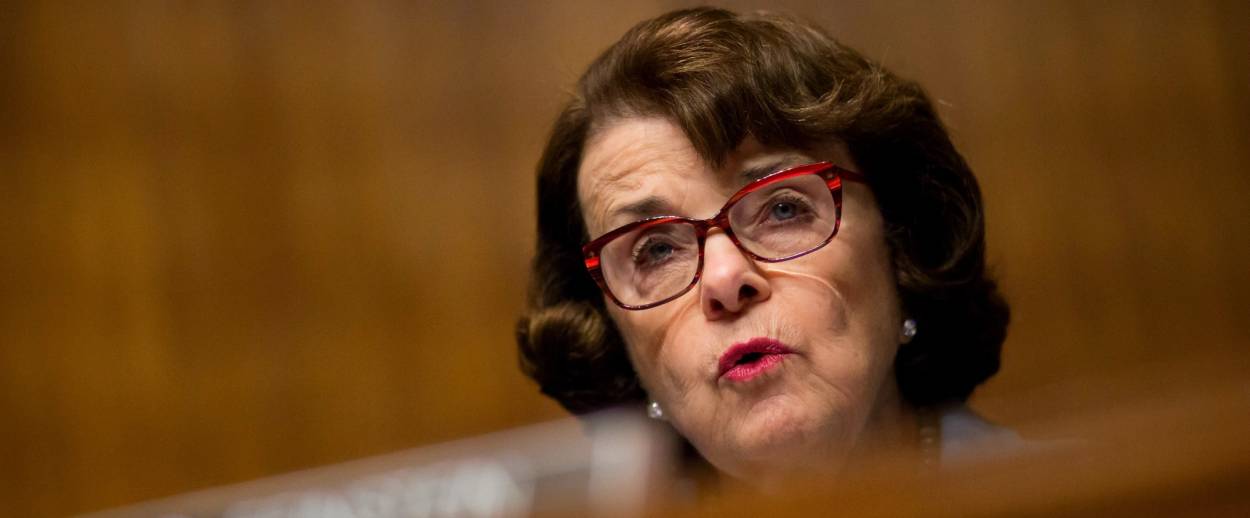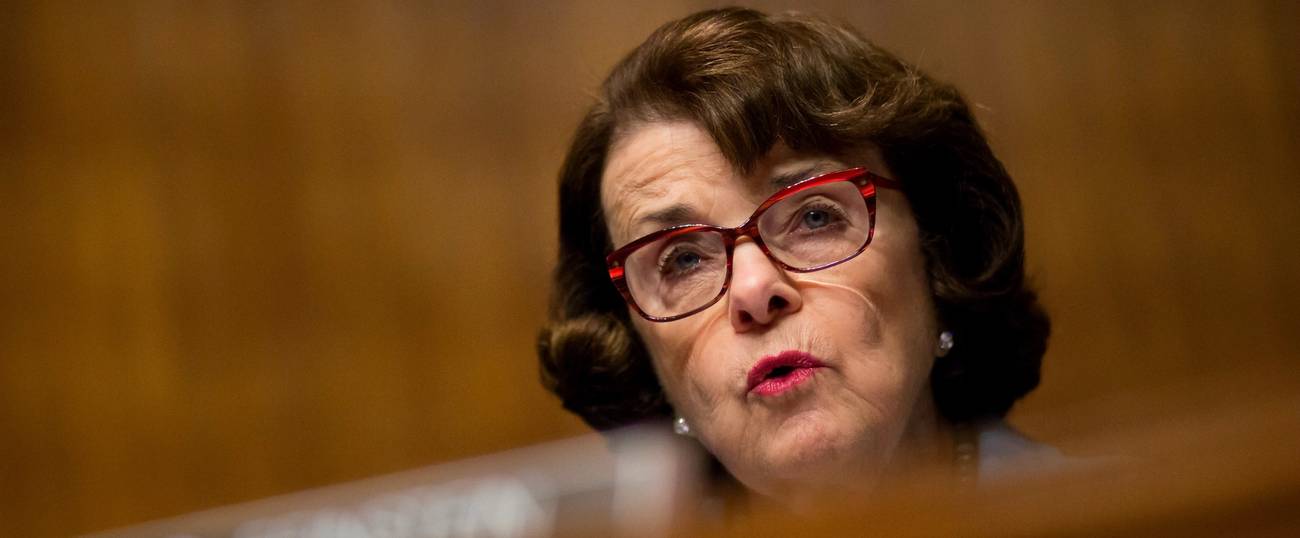Jewish Senators Need to Stop Subjecting Non-Jewish Nominees to Religious Tests
Dianne Feinstein and Bernie Sanders recently dabbled in the practice. It’s unconstitutional and it never ends well for Jews or other minorities.




This past Wednesday, the Senate judiciary committee held its confirmation hearing for law professor Amy Barrett of Notre Dame, who had been nominated to serve on the 7th Circuit Court of Appeals. A devout Catholic, Barrett had not been shy about her personal views in her writings, including her opposition to both abortion and the death penalty. The former stance particularly concerned California Senator Dianne Feinstein, who asked Barrett whether her faith would interfere with her ability to apply the law.
Barrett had written previously that Catholic judges should never impose the tenets of their faith when they conflicted with the law, drawing a distinction between personal practice and jurisprudence: “Judges cannot—nor should they try to—align our legal system with the Church’s moral teaching whenever the two diverge,” the professor wrote. “They should, however, conform their own behavior to the Church’s standard. Perhaps their good example will have some effect.” But this did not seem to have registered with Feinstein.
“Dogma and law are two different things,” the senator said. “And I think whatever a religion is, it has its own dogma. The law is totally different. And I think in your case, professor, when you read your speeches, the conclusion one draws is that the dogma lives loudly within you, and that’s of concern.”
Essentially, Feinstein implied that Barrett’s religious beliefs could be grounds for her disqualification from the legal bench, despite the professor’s explicit commitments in the past and in her hearing to uphold the law and its precedents. The exchange followed on the heels of a similar one in June where Senator Bernie Sanders pilloried Office of Management and Budget nominee Russell Vought for his belief in the exclusive truth of Christian theology.
The framers of the Constitution, many of them refugees from religious persecution themselves, were well aware of the temptation to use religious beliefs to exclude qualified individuals from office, and so they explicitly forbade such tactics. As Article VI states, “no religious test shall ever be required as a qualification to any office or public trust under the United States.”
It is extremely hard to square this fundamental tenet of American democracy with the conduct of Feinstein and Sanders. Indeed, the former’s treatment of Barrett provoked the president of Princeton University, constitutional scholar Christopher Eisgruber, to take the extraordinary step of publicly rebuking the Senate judiciary committee.
“Article VI’s prohibition of religious tests is a critical guarantee of equality and liberty, and it is part of what should make all of us proud to be Americans,” he wrote in an open letter. “By prohibiting religious tests, the Constitution makes it impermissible to deny any person a national, state, or local office on the basis of their religious convictions or lack thereof. Because religious belief is constitutionally irrelevant to the qualifications for a federal judgeship, the Senate should not interrogate any nominee about those beliefs. I believe, more specifically, that the questions directed to Professor Barrett about her faith were not consistent with the principle set forth in the Constitution’s ‘no religious test’ clause.”
As Harvard law professor Noah Feldman put it to me, “It’s legitimate for Senators to seek assurance that a judge will rule according to the law. It’s outrageous—and unconstitutional—to suggest or even imply that a nominee’s religious faith would presumptively disqualify her from office.” The head of the Anti-Defamation League likewise rebuked Feinstein.
Now, the Barrett hearing was not exclusively a failure of Jewish lawmakers on the Democratic side. Among others, Hawaii Senator Maizie Hirono also interrogated the Notre Dame scholar extensively about her faith. But Jewish senators, in particular, should have known better—if not out of fealty to the Constitution, then out of self-interest.
That’s because for centuries, Jews have been subject to religious tests in efforts to disqualify them from public office. And it’s not hard to see how such tactics could easily be turned against Jews today. After all, numerous Jewish politicians and activists have invoked the Jewish principle of tikkun olam as their guiding light. The phrase originates in the prayer of Aleinu, which expresses the hope that we may l’taken olam b’malhut Shaddai, or “repair the world with God’s kingship.” Yet, Feinstein’s office later justified her interrogation of Barrett’s faith by pointing to a speech in which the Catholic professor told Notre Dame graduates, “Your legal career is but a means to an end, and … that end is building the kingdom of God.”
Why does the expression of one faith disqualify but not the other? And what is to stop conservatives from turning Feinstein’s and Sanders’ questioning around on liberal Jewish nominees? What would be the impact on Mormons, whose church bases its pro-immigration stance on religious values? Or liberal evangelicals, whose faith inspires them to combat climate change and preserve the environment? Or Muslims, who are particularly vulnerable to such religious red-lining given contemporary hysteria over Sharia law?
In practice, exclusionary tests for office are generally wielded by the powerful majority against minorities: gentiles against Jews, Protestants against Catholics, whites against non-whites, and so on. Jewish lawmakers should know better than to legitimize the very tactics that were used against them and others for centuries, if not out of principle, then out of self-regard.
The simple truth is this: America is currently run by a president who has repeatedly denigrated an entire class of people due to their faith. If progressives follow suit in their fight against him and his nominees, they will have lost before they’ve even begun.
Yair Rosenberg is a senior writer at Tablet. Subscribe to his newsletter, listen to his music, and follow him on Twitter and Facebook.